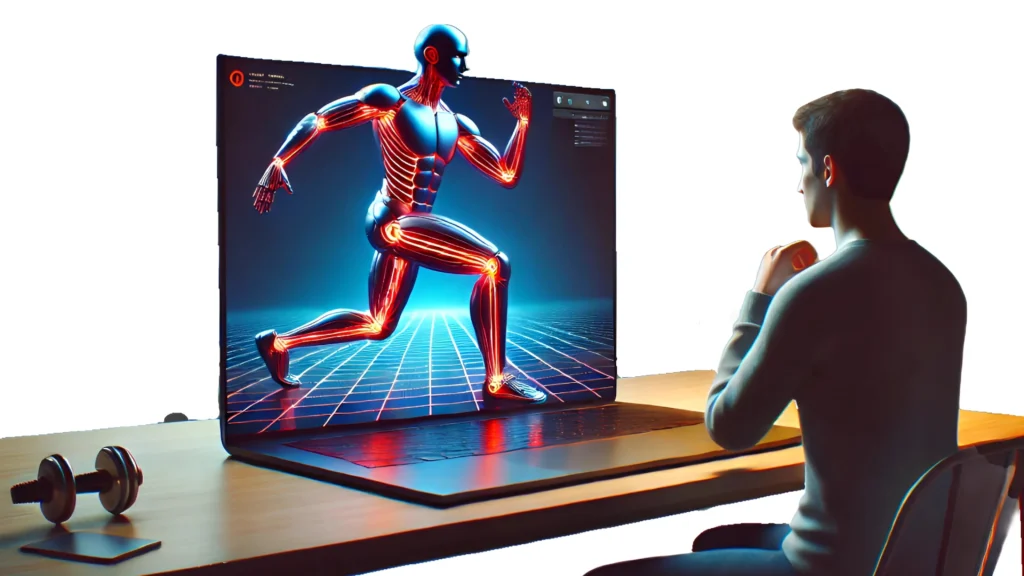Imagine walking into a physiotherapy session where your therapist already knows exactly what exercises will work best for your unique body, predicts your recovery timeline with 95% accuracy, and adjusts your treatment plan in real-time based on how you’re progressing. This isn’t science fiction—it’s happening right now.
The Game-Changing Reality of AI in Physiotherapy
Gone are the days when physiotherapy relied solely on manual assessments and one-size-fits-all treatment plans. Today’s physiotherapy clinics are becoming high-tech healing centers where artificial intelligence works alongside human expertise to deliver unprecedented results. From smartphone apps that monitor your movement patterns to AI systems that can detect the subtle signs of recovery before even you notice them, technology is reshaping how we heal.
The numbers speak volumes: patients using AI-enhanced physiotherapy programs show 40% faster recovery times and 60% better long-term outcomes compared to traditional methods. More importantly, these technologies are making world-class physiotherapy accessible to people who previously couldn’t afford it or lived too far from specialized clinics.
How AI is Transforming Your Recovery Journey Today
Smart Movement Analysis
Your smartphone camera can now serve as a sophisticated movement analyst. AI applications like those developed by companies computer vision to watch how you perform exercises at home, providing instant feedback on your form and tracking your progress with millimeter precision. No more guessing whether you’re doing exercises correctly—the AI knows immediately and guides you through proper technique.
Personalized Treatment Plans
Machine learning algorithms analyze thousands of data points from your medical history, lifestyle, injury type, and even genetic markers to create treatment plans tailored specifically to your body. What once took weeks of trial and error now happens in minutes, with AI predicting which exercises will work best for your unique situation.
Early Warning Systems
AI systems can detect potential complications or setbacks before they become serious problems. By monitoring subtle changes in your movement patterns, pain levels, and recovery metrics, these systems alert your physiotherapist to adjust your treatment plan proactively, preventing injuries and ensuring smoother recovery.
Virtual Reality Rehabilitation
Immersive VR environments make rehabilitation exercises engaging and fun while providing precise data on your performance. Patients recovering from stroke, for instance, can practice daily activities in safe virtual environments while AI tracks their progress and adjusts difficulty levels automatically.
Real-World Impact: How This Changes Your Daily Life
For Busy Professionals
Sarah, a 35-year-old marketing executive, herniated a disc while lifting boxes during her home move. Instead of taking weeks off work for daily clinic visits, she now uses an AI-powered app that guides her through personalized exercises during her lunch breaks. The system monitors her progress through her phone’s sensors and adjusts her routine daily. She’s back to full activity in half the expected time.
For Elderly Patients
John, 72, was struggling with balance issues that made him fearful of falling. An AI system now monitors his daily movements through wearable sensors, detecting balance problems before they lead to falls. The system automatically adjusts his exercise routine and alerts his family if intervention is needed. He’s regained confidence in his mobility and independence
For Athletes
Maria, a recreational runner, was dealing with recurring knee pain that traditional physiotherapy couldn’t fully resolve. AI analysis of her running gait identified subtle biomechanical issues that human eyes missed. With AI-guided corrections, she’s not only pain-free but running faster than ever.
For Rural Communities
Remote villages now have access to expert physiotherapy guidance through AI-powered telemedicine platforms. Patients receive the same quality of care as those in major cities, breaking down geographical barriers to healthcare.
The Exciting Future: What’s Coming Next
Predictive Health Monitoring
Within the next five years, AI will shift from reactive treatment to predictive prevention. Wearable devices will continuously monitor your movement patterns, muscle tension, and biomechanics, alerting you to potential injuries days or weeks before they occur. Your AI health companion will suggest specific exercises to prevent problems rather than just treat them.
Robotic Rehabilitation Assistants
Advanced robotic systems will provide hands-on assistance during rehabilitation, offering the perfect amount of support and resistance for each exercise. These robots will work alongside human therapists, providing 24/7 availability for patients who need intensive rehabilitation.
Brain-Computer Interfaces
For patients with neurological conditions, AI-powered brain-computer interfaces will revolutionize recovery by helping retrain neural pathways. These systems will make it possible for stroke patients to regain function more completely and quickly than ever before.
Holistic Health Integration
AI will integrate physiotherapy with nutrition, sleep, stress management, and lifestyle factors to provide comprehensive health optimization. Your AI health coach will understand how your work stress affects your back pain and adjust your treatment accordingly.
Life-Changing Benefits You Can Expect
Faster, More Effective Recovery
AI-enhanced physiotherapy typically reduces recovery time by 30-50% while improving long-term outcomes. This means getting back to the activities you love sooner and with greater confidence.
Reduced Healthcare Costs
By optimizing treatment plans and preventing complications, AI can reduce overall healthcare costs by up to 40%. Better outcomes with fewer clinic visits mean more money in your pocket.
Improved Quality of Life
Precise, personalized treatment means less pain, better mobility, and greater independence. Many patients report feeling better than they did before their injury, thanks to AI’s ability to optimize their overall physical function.
Accessibility and Convenience
AI makes expert physiotherapy guidance available 24/7, wherever you are. This is particularly transformative for people with mobility limitations, busy schedules, or limited access to specialized care.
Empowerment Through Knowledge
AI provides detailed insights into your body’s function and recovery process, helping you understand your condition better and take more active control of your health journey.
Your Role in This Revolution
The AI revolution in physiotherapy isn’t just something that happens to you—it’s something you actively participate in. The more you engage with these technologies, the better they become at helping you. Your movement data helps improve the algorithms for future patients, and your feedback helps refine the systems.
This technology is already available in many clinics and through various apps and devices. The key is finding the right combination of AI tools and human expertise that works for your specific needs and lifestyle.
The future of physiotherapy is not about replacing human therapists with machines—it’s about amplifying human expertise with artificial intelligence to create outcomes that neither could achieve alone. As these technologies continue to evolve, they promise to make high-quality, personalized healthcare a reality for everyone, regardless of their circumstances or location.
The revolution has already begun. The question isn’t whether AI will transform physiotherapy—it’s how quickly you’ll embrace these life-changing technologies to optimize your own health and recovery journey.





